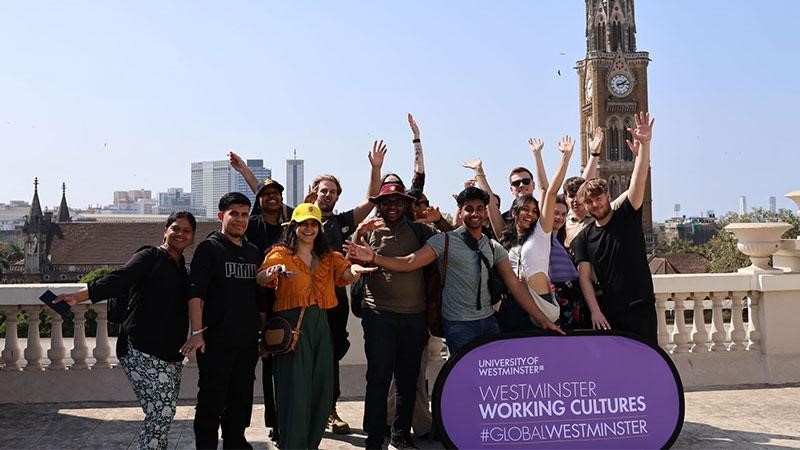News
ALL NEWSThe Westminster Working Cultures Programme (WWC) made possible by the generous funding support from the Quintin Hogg Trust, organised by the WWC team within the Alumni Relations Office.
WWC International is part of a wider programme of activity, including WWC UK, and is designed to support the employability skills development and global outlook of Westminster students. WWC International has hosted 25 trips all over the world since its launch in 2017, which have all featured a range of successful alumni and partner organisations with over 400 Westminster students taking part.
In January, 2024, 39 Westminster undergraduate students had the chance to explore the professional environments of Cairo and Mumbai as part of the Westminster Working Cultures International programme.

WWC International provides short-term mobility opportunities to Westminster undergraduate students, giving them a chance to experience work insights and employment culture in some of the world’s major cities.
Two separate groups of 19 and 20 students each visited Cairo and Mumbai, where they met almost 30 Westminster alumni and partners. Across 22 sessions they heard about a range of professional journeys unique to the local working environment and explored different sectors such as journalism, entrepreneurship, media and consulting.
Alumni speakers showcased the working cultures of, and routes into, organisations such as the British Embassy, British Council, Deloitte, Forbes, Health Prime India and Google Cloud. Participants also heard from several speakers who have started their own business, learning about what it takes to thrive as an entrepreneur. The group in Mumbai also visited ATLAS SkillsTech University, a longstanding partner of the University of Westminster for a series of sessions, a tour of the campus and an insight into what it’s like to be a student in Mumbai.
These trips contribute toward the Quality Education (4) development goal of the United Nations’ 17 Sustainable Development Goals (SDGs) which were adopted by the University of Westminster to help make the University a more sustainable, responsible and inclusive place to live, work and study.
Please follow this link to see full story
Westminster alumna becomes UN consultant thanks to University partnership with UN Migration Agency